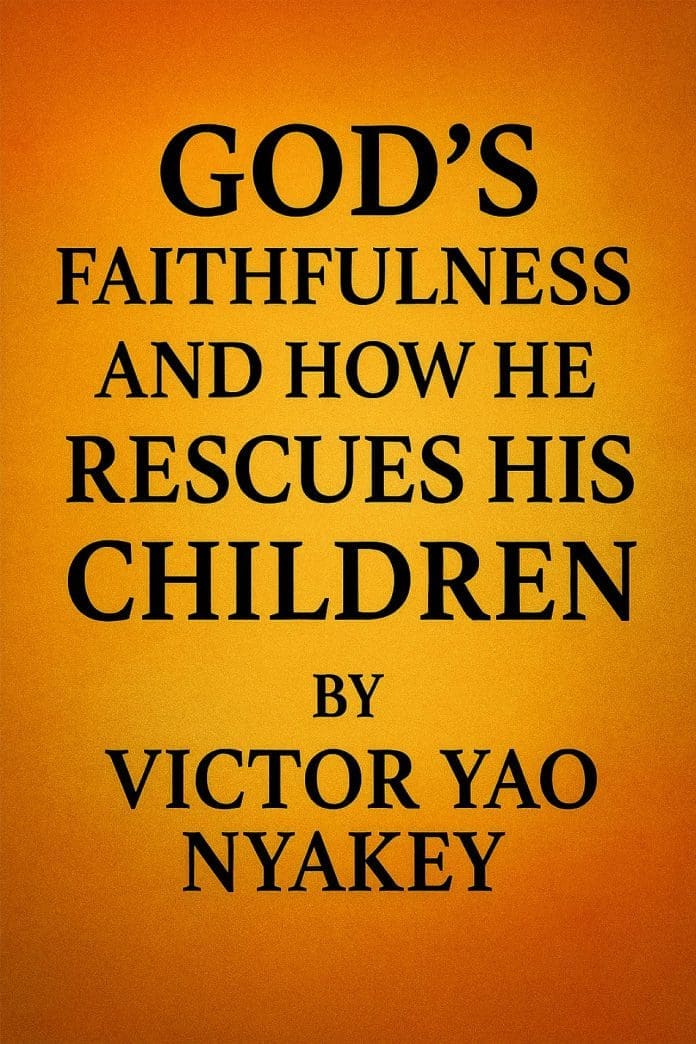God’s faithfulness is a central theme in many religious traditions, reflecting the belief that God is unwavering in His promises and care for His people. Throughout history and in various scriptures, stories of divine intervention and protection abound, showcasing how God rescues His children in times of need.
This feature article explores the profound nature of God’s faithfulness and how He delivers His children from adversity.
Understanding God’s Faithfulness
Consistency in Promises: God’s faithfulness is often described as His unwavering commitment to His promises. In the Bible, for example, numerous passages highlight how God keeps His word and fulfils His covenants, regardless of human failings.
Enduring Love: Another aspect of God’s faithfulness is His enduring love. This love is unconditional, not based on merit or actions but on His intrinsic nature. This divine love ensures that God remains a constant presence in the lives of His followers.
Biblical Examples of God’s Rescue
The Exodus: One of the most iconic stories of divine rescue is the Exodus, where God delivers the Israelites from slavery in Egypt. Through a series of miraculous events, including the parting of the Red Sea, God leads His people to freedom, demonstrating His power and faithfulness.
Daniel in the Lion’s Den: In the Book of Daniel (chapter 6), we see another powerful example of God’s rescue. Despite being thrown into a den of lions for his unwavering faith, God protects Daniel, showcasing that divine intervention can defy even the most dire circumstances.
The Life of Jesus: The New Testament provides numerous accounts of God’s faithfulness through the life and ministry of Jesus Christ. From healing the sick to calming storms, Jesus’ actions are a testament to God’s unwavering care and miraculous intervention in human lives.
Modern-Day Testimonies
Personal Stories: Many believers today share testimonies of how they have experienced God’s faithfulness. These stories often involve being saved from financial ruin, healed from illness, or finding peace in times of emotional turmoil.
1 Corinthians 1:26-31:Brothers and sisters, think of what you were when you were called. Not many of you were wise by human standards; not many were influential; not many were of noble birth. But God chose the foolish things of the world to shame the wise; God chose the weak things of the world to shame the strong. God chose the lowly things of this world and the despised things—and the things that are not—to nullify the things that are, so that no one may boast before him. It is because of him that you are in Christ Jesus, who has become for us wisdom from God—that is, our righteousness, holiness, and redemption. Therefore, as it is written: “Let the one who boasts boast in the Lord.”
Joshua Milton Blahyi is a beneficiary of God’s goodness. He said, “The people of Liberia, their forgiveness is relative — some of them have forgiven me, some of them have still not forgiven me, but I know God has forgiven me because God said it.”
Joshua Milton Blahyi was a rebel, a warlord, a leader of violence and destruction, a rapist, and a murderer of men, women and children. Today, he is a preacher. He earned the somewhat humorous nickname “General Butt Naked” by fighting completely naked in the First Liberian Civil War. Blahyi is transparent about his involvement in the civil war and acknowledges the pain and suffering he created – excerpts from Alexis Giunta’s feature article titled ‘From Vicious Warlord to Evangelical: The Story of General Butt Naked.’
Once a Liberian rebel commander, Joshua Milton Blahyi has cast his past aside and devoted himself to the teachings of Jesus Christ. Despite that spiritual awakening, however, he remains best known as “General Butt Naked” — the warlord who fought in the nude and ate human flesh, part of Marco Margaritoff’s article, edited by Adam Farley, says.
Community Support: Acts of God’s faithfulness are also evident through the support and kindness of others. Many people report experiencing divine rescue through the timely help and support their communities or strangers provide, reflecting God’s presence in everyday interactions.
Theological Reflections
Trust and Surrender: Trust is key to experiencing God’s rescue. Believers are encouraged to trust in God’s plan and surrender their fears and anxieties to Him. This act of faith opens the door to witnessing God’s faithful intervention.
Prayer and Faithfulness: Prayer is often seen as a powerful tool for invoking God’s help. Many religious traditions emphasise the importance of earnest prayer and maintaining faith, even in the face of uncertainty, as a way to invite God’s faithful response.
Lessons on Faith and Resilience
Strength in Adversity: The stories of God’s faithfulness often highlight the strength and resilience of those who believe. Facing challenges with faith brings comfort and reinforces the belief that God’s presence is a source of unyielding support.
Hope and Encouragement: God’s faithfulness offers hope and encouragement, reminding believers that no matter how difficult the circumstances, divine help is always available. This hope sustains individuals through trials and instils a sense of peace and assurance.
Conclusion
God’s faithfulness is a cornerstone of many religious beliefs, underscoring the divine promise of unwavering support and intervention. Through historical accounts, modern-day testimonies, and theological reflections, the theme of divine rescue resonates deeply with believers. By trusting in God’s faithfulness, individuals find strength, hope, and reassurance, knowing that they are never alone in their journey.
Source: newsghana.com.gh











